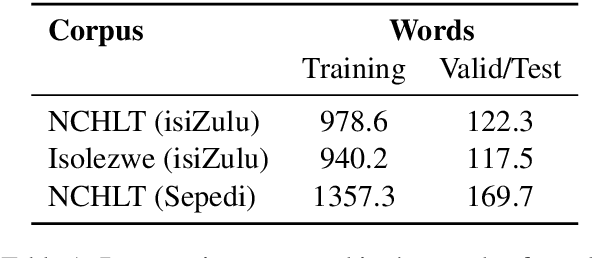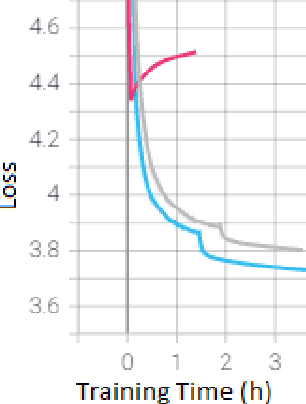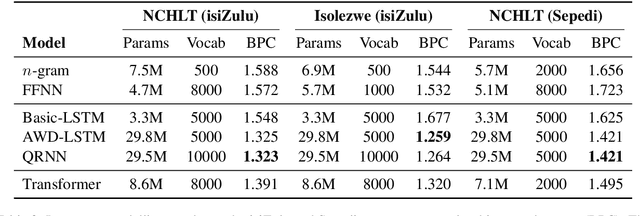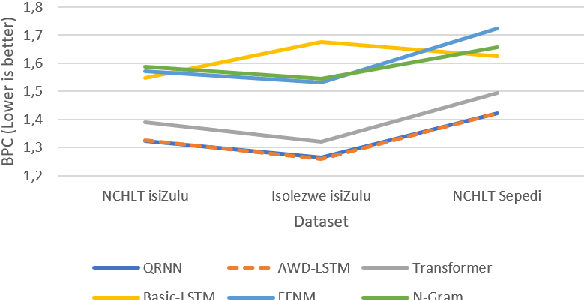Low-Resource Language Modelling of South African Languages
Paper and Code
Apr 01, 2021



Language models are the foundation of current neural network-based models for natural language understanding and generation. However, research on the intrinsic performance of language models on African languages has been extremely limited, which is made more challenging by the lack of large or standardised training and evaluation sets that exist for English and other high-resource languages. In this paper, we evaluate the performance of open-vocabulary language models on low-resource South African languages, using byte-pair encoding to handle the rich morphology of these languages. We evaluate different variants of n-gram models, feedforward neural networks, recurrent neural networks (RNNs), and Transformers on small-scale datasets. Overall, well-regularized RNNs give the best performance across two isiZulu and one Sepedi datasets. Multilingual training further improves performance on these datasets. We hope that this research will open new avenues for research into multilingual and low-resource language modelling for African languages.
 Add to Chrome
Add to Chrome Add to Firefox
Add to Firefox Add to Edge
Add to Edge